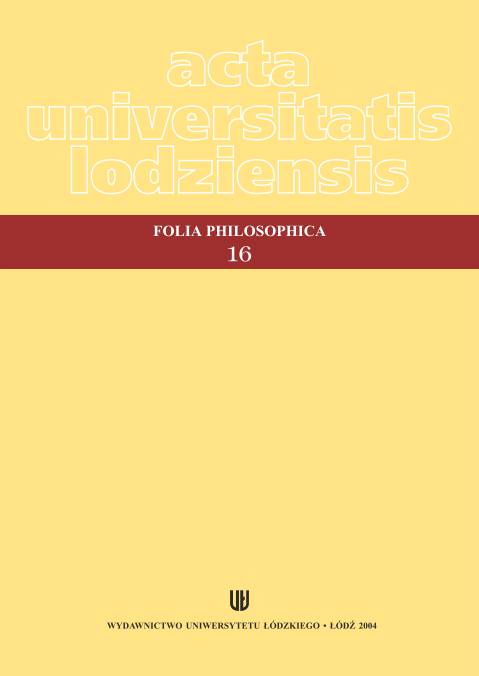Proklos jako komentator Platona
DOI:
https://doi.org/10.18778/0208-6107.16.02Abstrakt
Not only in Polish philosophical literature non-Christian Neoplatonism of Late Antiquity still lie in the unexplored gap between two domain of the history of philosophy, that of ancient one and that of medieval. The paper has had two aims: to briefly present Proclus' activity at Athens as a commentator on Plato, especially as a commentator on the "Timaeus" and on the "Parmenides", and to set forth the statement, which is hoped that it has been sufficiently proved through philological and philosophical analyses of selected quotation from Proclus, Marinus and Plotinus, that for Proclus, such as for the rest of Neoplatonists of that period, above mentioned activity (i.e. explaining Plato by writing huge commentaries) was essentially a way of expressing new ideas and their own original thought. The author suggest that some of the Proclus' commentaries on Plato might have simply into being as a kind of notes or records of the meetings at the 'Academy', where Proclus with his students was reading and explicating some dialogues selected out of all the Platonic writing. The obvious evidence of that is the structure of Proclean commentaries and especially such a fact that he is quoting and analyzing Platonic texts line by line. The paper also contains the Polish translation of the part of the book III of Proclus' "Commentary on Plato's Parmenides" as a kind of textual illustration of its theses.Pobrania
Opublikowane
2004-01-01
Jak cytować
Komorowski, M. (2004). Proklos jako komentator Platona. Acta Universitatis Lodziensis. Folia Philosophica. Ethica-Aesthetica-Practica, (16), 23–42. https://doi.org/10.18778/0208-6107.16.02
Numer
Dział
Articles
Licencja

Praca jest udostępniana na licencji Creative Commons Attribution-NonCommercial-NoDerivatives 3.0 Unported License.












